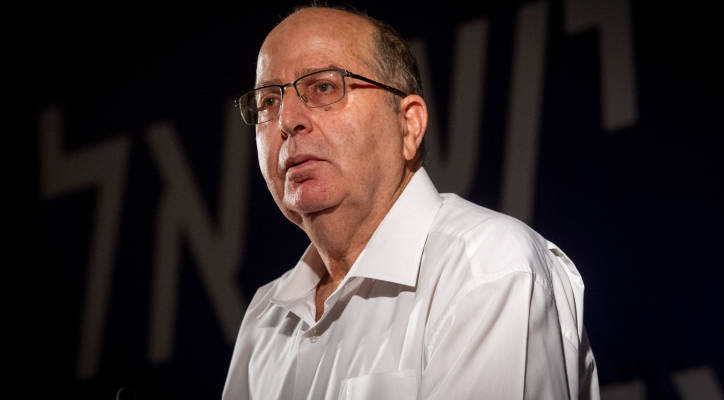Former Israeli Defense Minister Moshe Ya’alon on Thursday urged nations to recognize the danger posed by Iran and to work to prevent it from exploiting the nuclear deal to redraw the political map of the Middle East in its favor.
By: Ruthie Blum/The Algemeiner
In an op-ed in the Los Angeles Times, Ya’alon wrote that though American political leaders on both sides of the aisle consider defeating ISIS to be a top priority, a more crucial challenge is the “multifaceted threat of a militaristic, messianic” Islamic Republic, “much more menacing to Western interests than the Sunni thugs and murderers of Raqqah and Mosul.”
Ya’alon — the Rosenblatt Distinguished Fellow at the Washington Institute for Near East Policy – asserted that through the agreement it signed with world powers in July last year, the mullah-led regime has gained much more than it relinquished. “In exchange for postponing its military nuclear project, it achieved the lifting of many economic sanctions, an end to its political isolation and the loosening of restrictions on its ballistic missile program,” he wrote. In addition, he said, “[O]ut of the P5+1’s exaggerated fear of taking any steps that might give the Iranians an excuse to scuttle the deal, Tehran [also received] wide latitude to advance its influence throughout the region as it no longer fears a US-led ‘military option.’”
He continued:
The evidence of Iran’s rogue behavior is overwhelming. It is the prime backer of the genocidal Syrian regime, providing President Bashar Assad with funds, weapons and the support of Shiite militias. It supplies weapons, money and training to Hezbollah, using it as a strategic tool to undermine the legitimate role of the Lebanese government. In Yemen, Iran fans conflict by sending arms to the Houthi rebels. Elsewhere in the Arabian Peninsula, it uses proxies to undermine Bahrain and Saudi Arabia. In Israel’s neighborhood, Iran finances Palestinian Islamic Jihad and certain Hamas elements and provides them with the know-how to produce rockets, drones and other weapons. None of this has abated with the Iran nuclear deal; to the contrary, Iran has grown more aggressive on all fronts…And in 14 years, when critical restrictions will be lifted, the world may be in a worse position to prevent Iran’s nuclear project than ever before.
According to Ya’alon, “It is not too late to repair the impression that the West — led by the United States — views Iran as part of the solution to the problems of the Middle East, rather than the chief source of the region’s instability and radicalism.” Indeed, he wrote, “Those who believed that the nuclear agreement would lead to a more moderate, open, reformist Iran, at home and abroad, regrettably suffer from wishful thinking. So long as the ayatollah’s regime governs Iran, there is no chance we will see a McDonald’s in Tehran. Instead, we will see more executions, more repression, more tyranny.”
Ya’alon concluded that this is grasped by countries across the Middle East that used to be on opposing sides. “Today, Arabs and Israelis are in the same boat, facing Iranian-backed threats all around us; in terms of how to address these threats, we are also generally on the same page,” he stated. However, “What we lack is leadership from our traditional allies in the West, especially our good friends in America. Should President Obama or his successor shift priorities and lead a campaign to pressure Iran to end its destabilizing policies — applying the same type of pressure that forced Iran to negotiate on its nuclear program — it will find willing partners among both Arabs and Israelis.”
Five months ago, Ya’alon stunned the political arena by announcing his resignation on social media. “I have informed [Prime Minister Benjamin Netanyahu] that following his conduct during recent developments I have lost faith in him. I will resign from the Knesset and take a timeout from politics,” he posted on Twitter and Facebook.
Later he stated: “I have no intention of quitting political or public life. I will return and I plan to vie for a position of leadership in the future…I have seen every one of my roles as a calling and I have never been willing to sacrifice Israel’s security for political gain. I have worked harmoniously with the prime minister for a long time, especially during Operation Protective Edge, but unfortunately I found myself having serious disagreements with the prime minister and several ministers and MKs, on fundamental issues.”
Ya’alon, a member of Netanyahu’s Likud party, was replaced by Yisrael Beiteinu leader Avigdor Lieberman, who has been serving as Israel’s defense minister since June.
